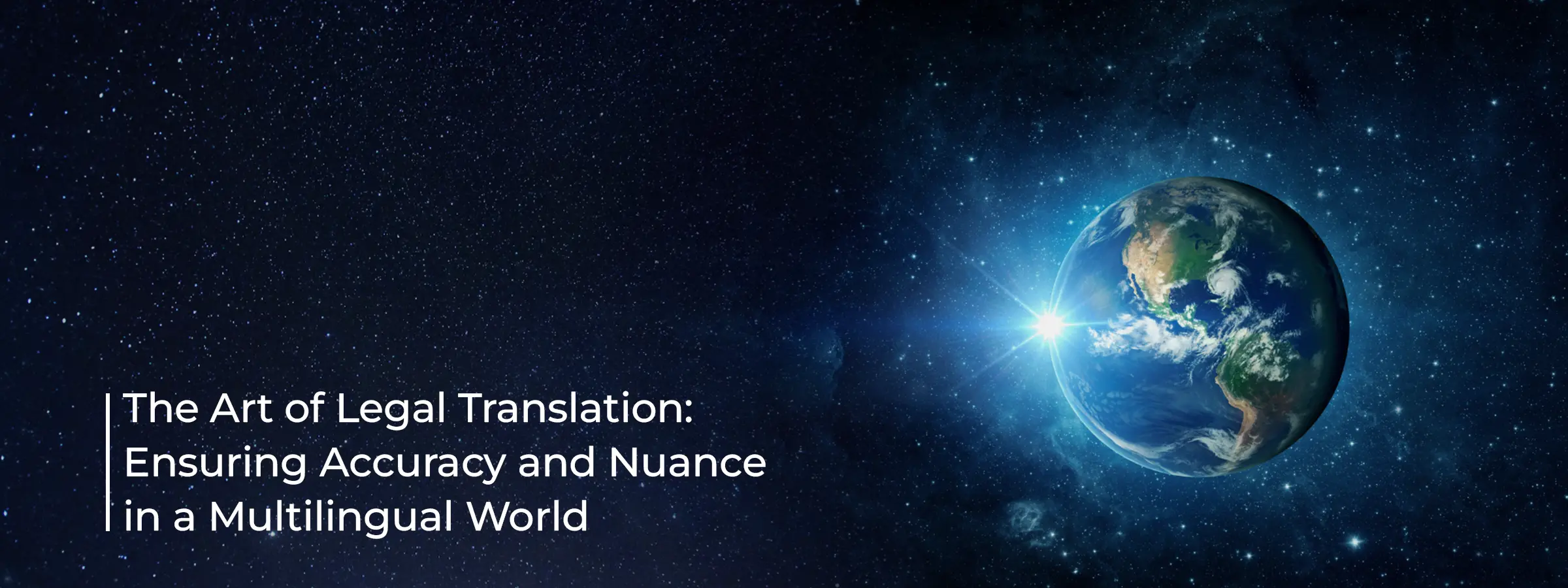
In the intricate dance of international law and business, the precision of language plays a pivotal role. Legal translation, a field where the power of words meets the letter of the law, emerges as a crucial bridge between jurisdictions, cultures, and languages. This specialised discipline goes far beyond mere translation; it's an art form that ensures legal documents not only convey the same meaning in another language but also respect the target audience's unique legal systems and cultural nuances.
Legal documents are the backbone of trust in international business. A contract, for instance, is more than just a piece of paper; it's a binding agreement that outlines the expectations and obligations of all parties involved. The complexity of these documents increases exponentially when they need to be understood across different legal systems and languages. A single misinterpretation or mistranslation can lead to disputes, financial loss, or even the collapse of a business deal. Thus, the accuracy and nuance of legal translation are not just a preference; they are imperative.
The art of legal translation lies in the translator's ability to navigate the nuanced landscape of language and law. Legal terms often do not have direct equivalents in other languages, requiring translators to have an in-depth understanding of legal concepts in both the source and target languages. Moreover, legal systems vary significantly across countries. For example, the standard law system in the United States and the United Kingdom differs from the civil law systems in France and Germany. A proficient legal translator must understand these differences to ensure that the translation respects the legal framework of the target language.
Effective legal translation services extend far beyond the courtroom or the negotiation table. They are a cornerstone of successful international business expansion and customer service. Businesses can confidently enter new markets, secure deals, and protect their interests abroad by ensuring that legal documents are accurately translated. Clear and precise legal communication also fosters trust among international clients, enhancing customer service and long-term partnerships.
The rise of technology has brought about significant advancements in legal translation. Translation tools and software can assist human translators in ensuring consistency and accuracy across large volumes of legal documents. However, the nuanced nature of legal language and the complexity of legal systems mean that technology alone is insufficient. The human element - the skilled legal translator - remains irreplaceable, blending linguistic expertise with legal knowledge to navigate the subtleties of language and law.
As the world becomes increasingly interconnected, the demand for skilled legal translation services
will continue to grow. The future of legal translation lies in the fusion of human expertise and
technological innovation, creating a landscape where accuracy, efficiency, and nuance are
paramount. For legal firms, businesses, and international organisations, investing in high - quality
legal translation is not just a necessity - it's a strategic move towards global success.
In conclusion, the art of legal translation is a critical component of the global legal and business
ecosystem. It requires a delicate balance of linguistic skills, legal knowledge, and cultural sensitivity.
As businesses expand across borders, the importance of accurate and nuanced legal translation will
only increase, underscoring its role in fostering international cooperation, ensuring compliance, and
building trust in a multilingual world.
© 2024 WHITE GLOBE GROUP PVT LTD